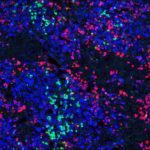Link to Pubmed [PMID] – 25173376
Link to DOI – 10.1007/978-1-4939-1453-1_8
Methods Mol Biol 2014 ; 1213(): 81-8
Human induced pluripotent stem (hiPS) cells are established following reprogramming of somatic cells from a wide variety of tissues. Given the scarcity of adult human hepatocytes, hiPS-derived hepatocytes would be a valuable source of cells to study differentiation programs, model patient-specific diseases, test drug toxicities, and cell transplantation therapies. Although hiPS-derived hepatocytes are extensively characterized in cell culture assays, testing these cells in animal models is necessary to fully evaluate their differentiation profile and their lack of tumorigenicity. Immunodeficient mouse models harboring liver damage are effective hosts in which xenogeneic hepatocytes can engraft, proliferate, and participate in liver regeneration, thus constituting a stringent test of hepatocyte functionality. The in vivo evaluation of disease-specific hiPS-derived hepatocytes should broaden our understanding of the cellular and molecular processes involved in inherited metabolic liver disease phenotypes. Herein, we detail our methods to test the functions of hiPS-derived hepatocytes in the context of the immunodeficient Rag2(-/-)IL2Rγc(-/-)Alb-uPAtg mouse model.




